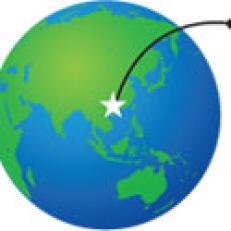Room To Improve
Engaging spectacle that it is, the Ryder Cup might benefit from some fresh ideas -- and here are five for starters
Let The Captains Select Their Entire Team
Skippers on both sides are glorified in victory and vilified in defeat. Sure, they matter -- sometimes a great deal -- but their impact is often overstated. There is a simple but profound way, though, to alter the captain's role and make him a much more critical factor.If you think there is a lot of chatter about the respective four and two wild-card picks currently available to the captains of the United States and Europe, imagine if each leader selected all 12 of his players. Such a system would be a huge responsibility for the captains, rewarding their instincts for team chemistry, and a fascinating prelude to the matches for fans. Well before a flag is raised or a national anthem played, captains would truly matter.
Improve The Venues
The quality/allure of a course has seldom been the sole factor in determining where big events are staged. And golf politics and the almighty dollar (or Euro) seem to speak louder than ever. That said, how cool would it be if the Ryder Cup bowed less to the bottom line and in the process was held more frequently on classic courses?Having played the matches on three traditional gems (Oak Hill, The Country Club and Oakland Hills) within the past two decades, the PGA of America is less guilty of omitting the classics than the European Tour, which hasn't brought the Ryder Cup to a links since 1977 at Royal Lytham & St. Annes. That is way too long.
Play The Matches Over Four Days Instead Of Three
The current format of two-session, dawn-to-dusk competition for the first two days (foursomes and four-ball matches) followed by a day of 12 singles matches has been the norm since 1979, but other schedules were used previously. There is no reason a new scheme couldn't be employed now.Following the lead of the Presidents Cup, the Ryder Cup could expand its drama to Thursday through Sunday. As in the matches between the U.S. and an International roster, contest six team matches on the first two days (foursomes one day, four-ball the other), with two four-match sessions in both formats on the third day. The final day would remain 12 singles matches. There would be 32 total points at stake -- the same number available for the Ryder Cup between 1963 and 1975 -- instead of the present 28.
Eliminate The Blind Pairings In Singles
In another nod to the much younger international team competition, the Ryder Cup would be spiced up by having the captains more involved with the singles matchups.There is a certain intuition and intrigue involved in a captain pre-arranging his dozen golfers (See: Rory vs. Tiger), attempting to outsmart the opposition in where he places whom in the lineup. But having to select the singles roster, one player after another in response to your opposite number, forces the leaders to display a different kind of moxie and produces a great 15 minutes of entertaining viewing to boot. Although the Ryder Cup might be about goodwill and competition, it has evolved into first-rate entertainment too.
Have A Winner And A Loser
There have been only two ties in the history of the Ryder Cup (the United States retained the Cup after a 16-16 deadlock -- creating the fond memory of Nicklaus conceding the last putt to Tony Jacklin -- in 1969; Europe kept it with a 14-14 result in 1989), but the possibility of a deflating, we-did-all-this-for-that outcome remains.Outside the youngest of youth leagues, sporting competitions should have winners and losers. A Ryder Cup tie should not go to the reigning Cup holder but should be decided before the two teams jet home. In order to avoid only two men having the burden of victory or defeat and weight of their teams solely on their shoulders, the captains should each select three golfers (pitted as in the suggested singles revision) to go at it in sudden-death. The side that wins two out of the three mini-matches wins the Ryder Cup.















